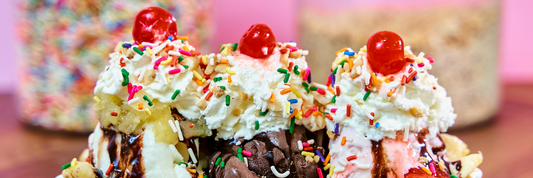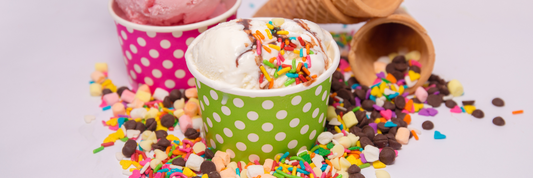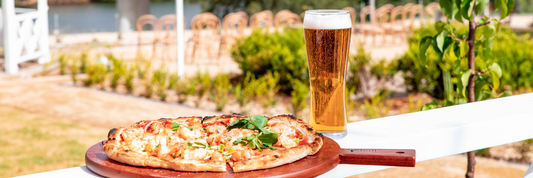Tea is one of the world’s most beloved beverages, enjoyed for its diverse flavors, cultural significance, and health benefits. However, one common question among tea enthusiasts and newcomers alike is: Does tea contain caffeine? The short answer is yes, most teas do contain caffeine, but the amount varies depending on the type of tea, the leaves used, and the brewing process. In this guide, we’ll explore the caffeine content in different teas, their health effects, and tips for managing caffeine intake.
Does Tea Have Caffeine?
 The straightforward answer is yes, most types of tea do have caffeine. 1 When we talk about what is true tea, we are referring to beverages made from the leaves of the Camellia sinensis plant. 2 This single plant is the origin of popular teas like black tea, green tea, white tea, and oolong tea, and all of these naturally contain caffeine. So, if you're wondering whether your cup of true tea has caffeine, the answer is almost certainly yes.
The straightforward answer is yes, most types of tea do have caffeine. 1 When we talk about what is true tea, we are referring to beverages made from the leaves of the Camellia sinensis plant. 2 This single plant is the origin of popular teas like black tea, green tea, white tea, and oolong tea, and all of these naturally contain caffeine. So, if you're wondering whether your cup of true tea has caffeine, the answer is almost certainly yes.
Caffeine in Herbal Teas: Exploring the Alternatives
When we talk about caffeine in herbal tea, it's important to understand that most herbal teas are naturally caffeine-free. This is because, unlike true teas, herbal teas (also known as tisanes) are not made from the leaves of the Camellia sinensis plant. Instead, they are infusions made from herbs, flowers, fruits, and roots. However, there are a few exceptions to this rule. Let's explore the caffeine content of some popular herbal teas.
Does Hibiscus Tea Have Caffeine?
No, hibiscus tea is naturally caffeine-free. If you're looking for a vibrant and tangy beverage without the caffeine kick, caffeine in hibiscus tea makes it an excellent choice, perfect for any time of day.
Does Matcha Tea Have Caffeine?
Interestingly, yes, matcha tea does have caffeine. Unlike most herbal teas, matcha is a powdered green tea, meaning you consume the entire leaf. Because of this, the caffeine in matcha tea can be higher than in traditionally brewed green tea. So, if you're looking for an herbal-adjacent option with a good amount of caffeine, matcha is a great pick.
Does Peppermint Tea Have Caffeine?
No, peppermint tea is naturally caffeine-free. The refreshing and soothing qualities of peppermint tea, combined with the absence of caffeine in peppermint tea, make it a popular choice for relaxation, especially after meals or in the evening.
Does Chamomile Tea Have Caffeine?
Similarly, chamomile tea is caffeine-free. Known for its calming properties, the lack of caffeine in chamomile tea makes it a go-to beverage for winding down before sleep.
Does Jasmine Tea Have Caffeine?
The answer to whether jasmine tea has caffeine is usually yes. This is because jasmine tea is typically made by scenting green tea leaves with jasmine blossoms. Since the base is usually green tea, caffeine in jasmine tea is present. However, the exact amount can vary depending on the type of green tea used.

Does Iced Tea Have Caffeine?
Generally, the answer to does iced tea have caffeine is yes. This is because most iced tea is simply brewed tea that has been cooled down and often served with ice. Therefore, if the base tea used to make the iced tea contains caffeine (like black tea, green tea, or oolong tea), then the resulting iced tea will also have caffeine. The specific caffeine content will depend on the type of tea that was used to brew it.
Comparing Tea Caffeine to Other Beverages
When considering caffeine intake, it's helpful to compare tea caffeine to other popular caffeinated drinks. Generally, a cup of tea contains less caffeine than a standard cup of coffee. So, in the debate of tea vs coffee caffeine, coffee typically comes out on top in terms of milligrams of caffeine per serving. When looking at caffeine in tea vs coffee more closely, you'll find that even black tea, which has a higher caffeine content among teas, usually has less than a typical brewed coffee.
Compared to soda, soda caffeine vs tea often shows tea having a similar or sometimes higher caffeine level, depending on the type of soda. However, energy drinks caffeine vs tea reveals a significant difference, with energy drinks usually packing a much higher dose of caffeine than a standard cup of tea.
| Beverage | Serving Size | Caffeine Content |
|---|---|---|
| Black Tea | 8 oz | 40-70 mg |
| Green Tea | 8 oz | 30-50 mg |
| White Tea | 8 oz | 30-55 mg |
| Oolong Tea | 8 oz | 30-50 mg |
| Herbal Tea | 8 oz | 0 mg (naturally caffeine-free) |
| Coffee | 8 oz | 95-200 mg |
| Soda | 12 oz | 30-50 mg |
| Energy Drink | 8 oz | 70-200 mg |
The Benefits and Considerations of Caffeine in Tea
The caffeine present in tea offers several potential benefits. Many people enjoy the increased alertness and enhanced focus that comes with consuming caffeinated tea, making it a popular choice for starting the day or for an afternoon pick-me-up. However, it's also important to be aware of potential considerations. Some individuals may experience side effects of caffeine in tea, such as nervousness, anxiety, or digestive issues.
Caffeine sensitivity tea is a real phenomenon, and those who are particularly sensitive to caffeine may need to monitor their tea intake or opt for caffeine-free alternatives. Additionally, consuming caffeinated tea too close to bedtime can potentially lead to sleep disruption for some individuals.
Conclusion
To provide a does tea have caffeine summary, it's clear that the answer is generally yes, especially when we're talking about true teas derived from the Camellia sinensis plant. However, the caffeine in tea takeaway is that the actual amount can vary significantly depending on the type of tea you choose, how it's processed, and even how you brew it.
From the bolder caffeine kick of black tea to the subtler presence in white tea, and the caffeine-free comfort of most herbal infusions, understanding these nuances allows you to make informed choices about what you're sipping.
Frequently Asked Questions (FAQs)
Here are some common questions about tea and caffeine that people often ask:
FAQ 1: How much caffeine is typically in a cup of black tea?
A typical 8-ounce cup of black tea contains around 47 milligrams of caffeine, but this can range from 40 to 70 milligrams depending on factors like the tea variety and brewing method.
FAQ 2: Does green tea have less caffeine than coffee?
Yes, generally, green tea has less caffeine than coffee.1 An 8-ounce cup of green tea usually contains about 20 to 45 milligrams of caffeine, while the same amount of brewed coffee can contain anywhere from 95 to 200 milligrams.
FAQ 3: Are herbal teas completely caffeine-free?
Most herbal teas are indeed completely caffeine-free because they are made from plants other than Camellia sinensis.2 However, it's always a good idea to double-check the label, as some herbal blends might include true tea leaves for flavor or other purposes.







